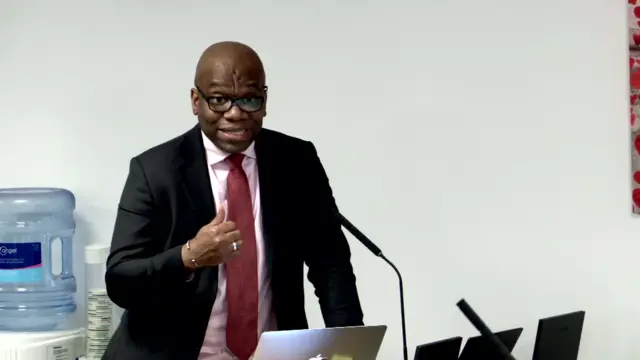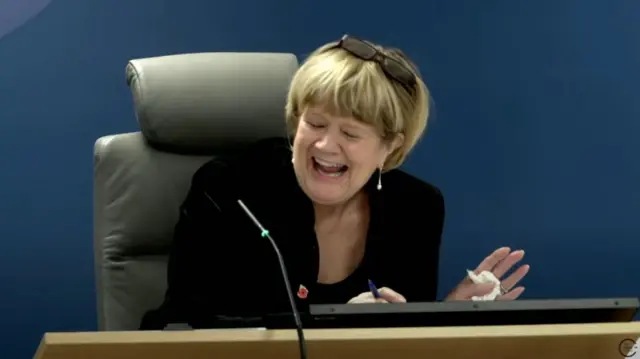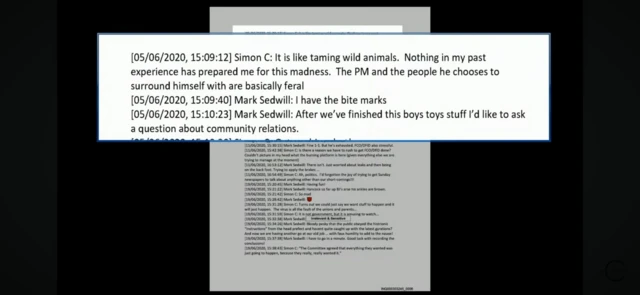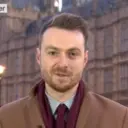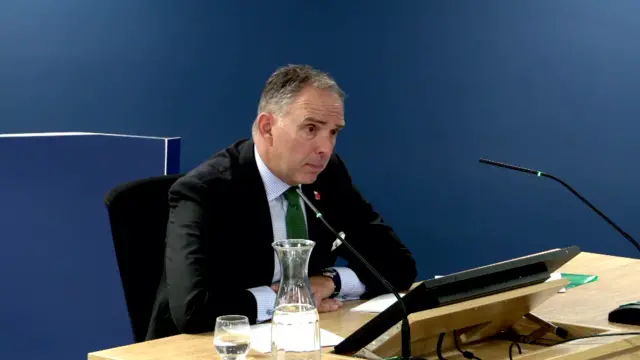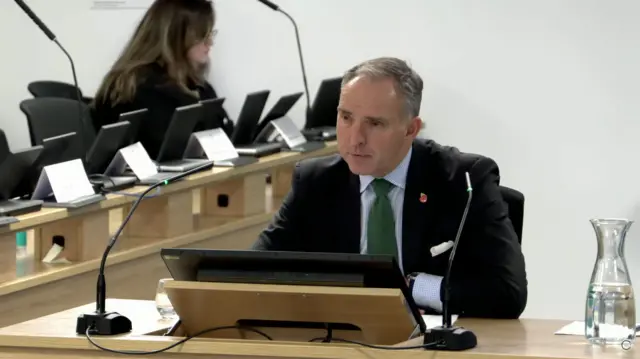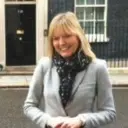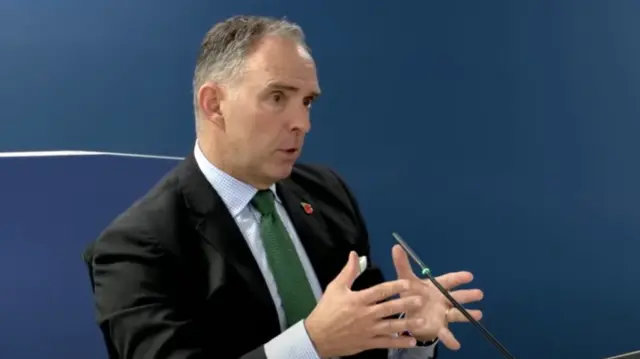Recap: Key moments of Sedwill's evidencepublished at 15:39 GMT 8 November 2023
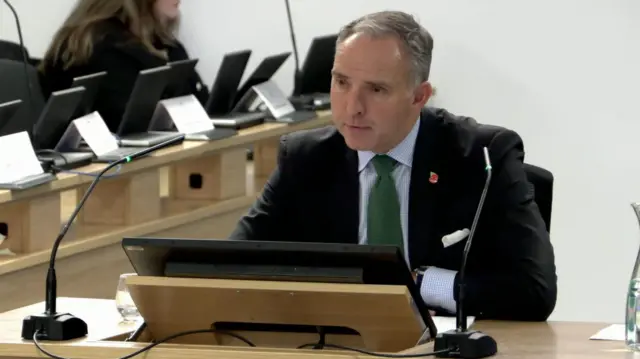 Image source, PA Media
Image source, PA MediaFormer cabinet secretary Mark Sedwill has finished giving evidence to the Covid inquiry, so here's a recap of what we learnt.
Chickenpox parties
- Sedwill was asked about claims he had suggested during the early stages of the pandemic that the government should encourage chickenpox-style parties with the aim of infecting people with Covid
- He admitted making the comment and apologised, accepting his suggestions could have come across as “both heartless and thoughtless”
- However, he argued that at the time it was "inevitable" the virus would spread and he was looking at ways of managing this
Characterisation of Boris Johnson
- In WhatsApp messages with Sedwill, another senior civil servant, Simon Case, described Boris Johnson and the people he chose to surround himself with as "basically feral". Sedwill - who responded by saying he had "bite marks" to show for it - told the inquiry this was "gallows humour"
- He told the inquiry he reminded the then prime minister that the cabinet needed to be involved in Covid decision-making, as he was concerned they were not "fully participative"
- He also said there was concern for Johnson's "stamina" during his recovery from Covid, after he was admitted to intensive care in April 2020
Criticism of Matt Hancock
- Former Health Secretary Matt Hancock also came in for criticism through WhatsApp messages shown to the inquiry
- Sedwill acknowledged he believed Hancock should have been sacked from his role and said he raised concerns with the prime minister - although he stressed he would not have used the word "sack" during such a conversation
- In a section from Johnson's witness statement, shown to the inquiry, the former PM said he did not have concerns over Hancock's performance and did not think he received any advice from Sedwill that he should be removed
Tory MP Justin Tomlinson - who was minister of state for disabled people, work and health from 2019 to 2021 - is giving evidence now. We won't be writing live text updates for his evidence session, but you can watch every moment by pressing play at the top of this page.
